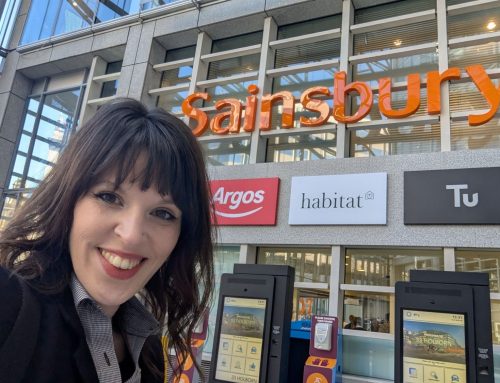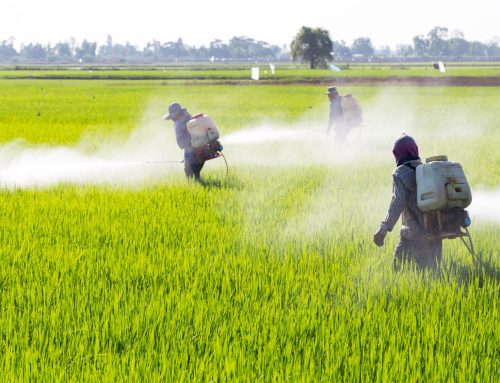Never has the UK more needed a plan to ensure our food system is sustainable, healthy and equitable than in the current climate of food insecurity, rising prices and food related health issues. It was encouraging to see the government taking an important step forward when it announced it was consulting on a new National Food Strategy that would look to address those issues and more.
When the recommendations were published in July 2021 by government food adviser Henry Dimbleby many were delighted at how comprehensively the issues had been addressed and surprised at the numerous strong recommendations aimed at making the UK food system fit for purpose. In May of this year, the government published the Government Food Strategy White Paper, a policy paper guided by the Dimbleby authored food strategy.
Can the Government Food Strategy White Paper deliver a comprehensive sustainable food strategy for the UK?
The White Paper clearly acknowledges that food production needs to become more sustainable if we are to tackle the twin problems of climate change and biodiversity loss while also providing healthy food for all. Sadly, it appears from the text that government is relying on other areas of legislation to deliver this goal. In particular they state that the, as yet unimplemented, Sustainable Farm Incentive scheme, which will replace CAP payments to farmers, will drive positive environmental change. A debateable point at best as it is nowhere near being adopted yet let alone rolled out to farmers. Secondly, they state that other schemes will be able to halt biodiversity decline by 2030 and increase biodiversity by 2042, treble the area of woodland and improve soil health and will be sufficient to deliver a sustainable food system. As many of these schemes are still being consulted on let alone implemented it is again difficult to feel confident in government promises.
Are new technologies really what we need?
Perhaps most worryingly there seems to be an overreliance in the strategy on new technologies, many that don’t yet exist, to deliver this promised sustainable farming system. The recent approval of gene editing is one of the strands for delivering improvement included in the White Paper. The White Paper also calls for an intensification of production in many sectors in order to free up farming land for rewilding and other environmental initiatives. This in theory could be a net benefit for nature, however, there is no clarity on how this intensification will be achieved. If it relies on increased inputs of pesticides and fertilizers then there will be no positive outcome for nature or our food system as a whole.
A school food revolution
An area that is key to a healthy food system is the food that our children eat, whether this is at home or at school. The White Paper states that it wants to spark a “school food revolution” to ensure that all children have access to healthy food choices. This is welcome but once again the detail is missing and relies instead on measures included within other policy areas. While they are saying they want children to have access to healthy food they do not define what that healthy food constitutes. As PAN UK pointed out some time ago, the School Fruit and Veg scheme for young children used fruit and vegetables with high levels of pesticide residues present. We pointed out at the time that for as little as 1p per child per day the government could provide organic fruit and vegetables to these children. This was ignored by then health secretary Jeremy Hunt. So the question is, will our children be getting the best organic food for school meals or will they simply be getting more of the same?
Public procurement of sustainable food
One of the key recommendations is for increased public procurement of sustainable food. This is something that could have significant benefits for the public and sustainable food producers. It is a measure already adopted by France where 50% of all public food procurement must be organic or locally-sourced. Predictably the measures in this White Paper do not go that far. Rather they commit to a consultation on feasibility and simply state that food served in schools should be sustainably produced food. PAN UK would like to have seen a commitment to a system similar to that in France. Ensuring that food procured is organic and/or local would help support organic growers, reduce food miles and have net benefits for both health and the environment. Once again the vision for the UK has fallen short.
The impacts of trade deals
Finally, the issue of trade is a significant factor in how our food system develops over the coming years. The government states that post-Brexit trade deals present myriad opportunities for the food sector to flourish, but ignores the potential threats that these same trade deals present to the UK’s existing food standards. PAN UK has been highlighting the threat that new trade deals pose to our relatively high pesticide standards since 2019. Our concerns have been backed up in the recent report from the Trade and Agriculture Commission on the UK-Australia trade deal, as well as by many others within the food and farming sector, including the National Farmers’ Union (NFU). These concerns about trade appear to have been ignored or sidestepped in the governments White Paper.
More information on the threats from trade deals can be found in the PAN UK Toxic Trade series.
In all this, the White Paper feels like a dog’s dinner rather than the healthy banquet it could and should be. It lacks detail, relies on other measures that are yet to be implemented, skips some key issues and is not bold or forward thinking enough to deliver the sustainable food system that is so desperately needed. In particular, it looks rather like a to-do list with no concrete measures or detailed plans for how to achieve any of the measures included. There are some positive steps in there but are they enough to fix our broken food system?
In the words of Henry Dimbleby “[This is] not a strategy. It doesn’t set out a clear vision as to why we have the problems we have now and what needs to be done.”
Sadly, PAN UK agrees.






